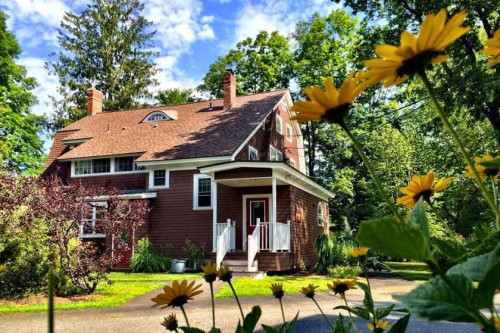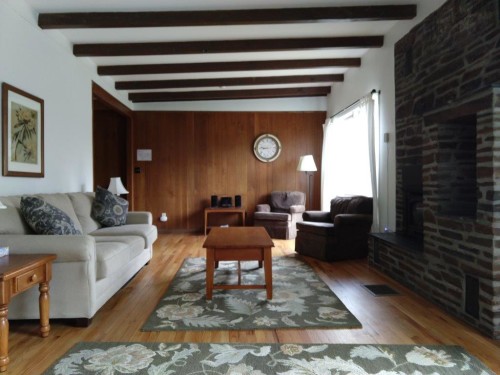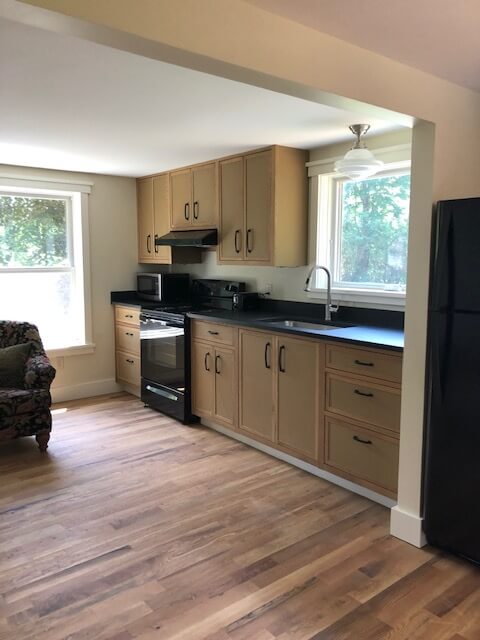





Spruce Mountain Inn
Treatment Focus
This center treats mental health conditions and co-occurring substance use. You receive collaborative, individualized treatment that addresses both issues for whole-person healing.
Primary Level of Care
Offering intensive care with 24/7 monitoring, residential treatment is typically 30 days and can cover multiple levels of care. Length can range from 14 to 90 days typically.
Claimed
Recovery.com has connected directly with this treatment provider to validate the information in their profile.
Treatment Focus
This center treats mental health conditions and co-occurring substance use. You receive collaborative, individualized treatment that addresses both issues for whole-person healing.
Primary Level of Care
Offering intensive care with 24/7 monitoring, residential treatment is typically 30 days and can cover multiple levels of care. Length can range from 14 to 90 days typically.
Private Pay
You pay directly for treatment out of pocket. This approach can offer enhanced privacy and flexibility, without involving insurance. Exact costs vary based on program and length of stay. Contact the center for specific details.
Spruce Mountain Inn
Spruce Mountain Inn
About Spruce Mountain Inn
Spruce Mountain Inn helps young adults realize their vocation, educational, and independent living goals by addressing mental health conditions and providing personalized life skills training. Their residential and transitional living programs provide care for depression, anxiety, OCD, PTSD, and additional co-occurring disorders. Through evidence-based and experiential therapies young adults (ages 18-28) break harmful habits and escape triggers in order to thrive in adulthood.
Spruce Mountain provides a variety of evidence-based therapies including family therapy, Cognitive Behavioral Therapy (CBT), Prolonged Exposure (PE), Cognitive Processing Therapy (CPT), and Eye Movement Desensitization and Reprocessing (EMDR). They also incorporate group therapy,12-Step meetings, psychoeducation groups, and exposure and Response Prevention (ERP) Therapy.
Another aspect of Spruce Mountain’s treatment involves a career support program, in which clients are placed in a local internship and life skills training groups. Through this track, clients form career objects, gain relevant skills, and accumulate relevant job experience. Additionally, in order to promote independent living, clients can receive educational support. Spruce Mountain Inn’s career and education coordinator works with clients to online coursework or classes at a local university to further their education goals during treatment.
At Spruce Mountain, clients can enjoy a variety of experiential and expressive therapies with a focus on adventure, art, movement, and music outings. Some of their off-site activities involve local trips such as art and music events, museums, movies, thrift shopping, and beach days. Additionally, their adventure group will take hiking trips, go rock climbing, skiing, and canoeing. Their movement group provides organized sports and games such as volleyball, basketball, tennis, frisbee, and gym workouts.
On their expansive rural campus, the Spruce Mountain lodge offers shared or single rooms, a comfortable lounge area, a rec room, an art studio, and a TV room. Clients can enjoy chef-prepared meals, yoga classes, access to fitness equipment, access to musical instruments, and an outdoor dining area. During the 9 month stay, technology and social media use are moderated. Clients begin their program at The Inn and later transition to The Apartments (staffed, transitional living), then The Greatwood Lodge (unstaffed, transitional living). Treatment generally lasts 9 months on average and can accommodate 22 clients at a time. Spruce Mountain accepts self-pay for treatment costs.
Center Overview
Treatment Focus
This center treats mental health conditions and co-occurring substance use. You receive collaborative, individualized treatment that addresses both issues for whole-person healing.
Pricing and Program Length
Estimated Center Costs
The cost listed here ($112,050), is an estimate of program cost. Center price can vary based on program and length of stay. Contact the center for more information. Recovery.com strives for price transparency so you can make an informed decision.
Levels of Care




Your Care Options
Specializations
Young Adults
Emerging adults ages 18-25 receive treatment catered to the unique challenges of early adulthood, like college, risky behaviors, and vocational struggles.
Life Skills
Teaching life skills like cooking, cleaning, clear communication, and even basic math provides a strong foundation for continued recovery.
Residential
In a residential rehab program, patients live onsite, with access to daily treatment and 24-hour care. An average stay is 30-90 days.
Transitional Living
After rehab, some people stay in a transitional living situation before returning home. These programs offer structure, education, and community support.
Who We Treat
Young Adults
Emerging adults ages 18-25 receive treatment catered to the unique challenges of early adulthood, like college, risky behaviors, and vocational struggles.
Approaches
Evidence-Based
A combination of scientifically rooted therapies and treatments make up evidence-based care, defined by their measured and proven results.
Holistic
A non-medicinal, wellness-focused approach that aims to align the mind, body, and spirit for deep and lasting healing.
Personalized Treatment
The specific needs, histories, and conditions of individual patients receive personalized, highly relevant care throughout their recovery journey.
Therapies
1-on-1 Counseling
Patient and therapist meet 1-on-1 to work through difficult emotions and behavioral challenges in a personal, private setting.
Adventure Therapy
This experiential approach uses the physical and emotional challenges of outdoor activities as tools for personal growth.
Experiential Therapy
With this approach, patients heal by doing. Therapists help patients process difficult emotions to speak, using guided activities like art or dance.
Expressive Arts
Creative processes like art, writing, or dance use inner creative desires to help boost confidence, emotional growth, and initiate change.
Eye Movement Therapy (EMDR)
Lateral, guided eye movements help reduce the emotional reactions of retelling and reprocessing trauma, allowing intense feelings to dissipate.
Family Therapy
Family therapy addresses group dynamics within a family system, with a focus on improving communication and interrupting unhealthy relationship patterns.
Life Skills
Teaching life skills like cooking, cleaning, clear communication, and even basic math provides a strong foundation for continued recovery.
Psychoeducation
This method combines treatment with education, teaching patients about different paths toward recovery. This empowers them to make more effective decisions.
Conditions We Treat
Anxiety
Anxiety is a common mental health condition that can include excessive worry, panic attacks, physical tension, and increased blood pressure.
Depression
Symptoms of depression may include fatigue, a sense of numbness, and loss of interest in activities. This condition can range from mild to severe.
Obsessive Compulsive Disorder (OCD)
OCD is characterized by intrusive and distressing thoughts that drive repetitive behaviors. This pattern disrupts daily life and relationships.
Post Traumatic Stress Disorder
PTSD is a long-term mental health issue caused by a disturbing event or events. Symptoms include anxiety, dissociation, flashbacks, and intrusive thoughts.
Trauma
Some traumatic events are so disturbing that they cause long-term mental health problems. Those ongoing issues can also be referred to as "trauma."
Substances We Treat
Co-Occurring Disorders
A person with multiple mental health diagnoses, such as addiction and depression, has co-occurring disorders also called dual diagnosis.
Languages
Care Designed for Your Needs
Personal Amenities
Amenities
Activities
Yoga
Yoga is both a physical and spiritual practice. It includes a flow of movement, breathing techniques, and meditation.
Off-Site Activities
Yoga
Yoga is both a physical and spiritual practice. It includes a flow of movement, breathing techniques, and meditation.





